Style Crush, The Girl From Love Street
I experienced a real stab of nostalgia while watching Mad Men this week. When Megan appeared in her indian hippie dress, it really took me back to my school and university days (an indie trend you understand, I wasn’t born until the seventies!) and a whopping great infatuation with all things bohemian.
In sixth-form I had a huge girl-crush on a friend called Polly. She was in my English class and knew her literature like noone else, particularly poetry. She had the longest hair and an older boyfriend whom she lived with….quite scandalous at the time. And, oh, did she look cool in her indian print dresses, rings on her fingers, and yes, even bells on her toes.
I spent many years after that trying to hone my own bohemian look and, as luck had it, my mum had a quite a collection of indian print skirts and kaftans. There is also photographic evidence of an amazing afghan coat – which my mum swears she never got rid of. But can we find it? No…
After Polly, came Star, in the The Lost Boys – remember that amazing sequined skirt?
After Star, came Mila Jovovich in Dazed and Confused….
Even Madonna, with her Patachouli scented “Like a Prayer” album…
 and finally Meg Ryan, as Pamela Courson, in The Doors.
and finally Meg Ryan, as Pamela Courson, in The Doors.
Damn, I wanted her wardrobe and perhaps Val Kilmer too!
In fact Pamela’s own wardrobe looked just as covetable, the original girl from Love Street:
There are some great bohemian looks on pinterest – but I think I might leave that for another post, later in the week.
Hey, I might even get round to doing an Inspired Buys this week. I haven’t done one in ages.
Nobody Does It Better – Ellen Von Unwerth
I recently pinned a picture of Eva Herzigova, in one of the Guess campaigns, shot by Ellen Von Unwerth, onto pinterest and it really brought back all the memories of those iconic images.
Does anyone do vintage glamour better than Ellen Von Unwerth?
Today, it’s an extremely visual post folks, and I’ll stop typing.
I know Claudia and Guess are back together to celebrate Guess’s thirtieth anniversary but I feel in the need for some nostalgia.
So let’s just sit back and enjoy Claudia, Carre and Eva 1989-1992, in all their glory, with a little help from the 1950’s.
My favourite?
In terms of vintage style, it has to be Eva in her fishnets, but for sheer beauty, I think Claudia looks damn fine on the back of that bicycle.
What’s yours?
Cxx
The Wicked Woman of the Jazz Age
Every era has an “It” girl.
She isn’t the most beautiful woman in the room, she isn’t the richest woman in the room nor is she the woman with the most glamorous outfit.
She is the one women aspire to. She has more style and ingenuity in her little finger than her circle of friends put together.
She isn’t a slave to fashion but 10 paces ahead – collecting the creative and the unique as she goes.
In the Jazz Age, this lady was Daisy Fellowes, described by Karl Lagerfeld as the “most stylish and wicked woman in fashion”.
Daisy was the daughter of Duc Decazes and Isabelle Singer. As heiress to the Singer fortune, she was brought up by her aunt Winnaretta de Polignac, following the suicide of her mother.
Daisy married Prince Jean de Broglie in 1910, whom she had three daughters with, Emmeline, Isabelle and Jacqueline. But it was during her second marriage to the banker Reginald Fellowes that she became the “goddess” of Cafe Society.
Daisy spent most of her time in Paris, but summered in Venice and frequently visited the US, in her yacht, Sister Ann, with the Duke and Duchess of Windsor.
In her book Allure, Diana Vreeland noted, “There’s an awfully chic comment, “somebody said to the devil ” I like your style” – that was Daisy. She had the elegance of the damned. When I speak about her, I’m speaking of those extraordinary eyes, the roundness of her cheeks and the aliveness and glow of the face…that face!”
Daisy knew the effect she had around her, as Cecil Beaton put it:
“Daisy Fellowes enjoyed making other women appear foolish, and would wear plain linen dresses when everyone else was dressed to kill. These linen suits, though simple in tailoring and often of identical shape, were ordered in dozens of different colours and complemented by barbaric jewels – handcuffs of emeralds, necklets of Indian stones, or conch shells of diamonds. She even wore jewellery with her beach suits”.
Daisy commissioned Cartier, in 1936, to make her a necklace which was to be called “Tutti Frutti”.
The necklace was designed as “a flexible collar of rubies, emeralds, sapphires and diamonds set in platinum, with, in the center, a removable clip brooch composed of two huge sapphires. The necklace was almost certainly based on one made in 1935 by Cartier for the Maharajah of Patna, using his own diamonds, emeralds and rubies. Curiously, Daisy Fellowes’s jewel places significant emphasis on sapphires, considered an unlucky stone in the Indian tradition.”
Fashion wise, Daisy played the part as muse and as a major client. Her desire to shock made her the perfect partner in crime for a certain designer called Elsa Schiaparelli – she who enjoyed designing the daring and she who enjoyed wearing the daring.
It was indeed Daisy who first wore the Dali inspired “Shoe Hat”, which Dali sketched for Elsa in 1937.
It ‘s not too difficult to believe then, that at the age of seventy, Daisy was still commissioning Givenchy to make her a Somali panther coat, shaped like a smock, with a drawstring waist and a panther tail belt, accessorized with gold kid cycling shoes and a necklace of topaz flowers! ( I just wish I had a picture)
Daisy didn’t wear clothes for the sake of wearing clothes. As the Metropolitan Museum of Art puts it. she “was not an acquisitive clotheshorse and was known for wearing the same dress for day and evening. She wore this empire-line dress to at least two official functions: a reception given by the King and Queen of England at the Palais de l’Élysée on July 19, 1938; and the court presentation of her daughter in March 1939.”
Daisy was not only daring in her attitude towards fashion, but also in her attitude to men and relationships. She was claimed to be more than a little predatory and ruthless with other people’s husbands.
She was also notorious for her addiction to opium and for her acid tongue. She allegedly once described her own offspring as: “The eldest is like her father, only more masculine. The second is like me, only without the guts. And the last is by some horrible little man called Lischmann.”
Caustic comments aside, it is no wonder that Karl Lagerfeld paid the ultimate compliment by photographing his own “daisy shoot” for Harper’s Bazaar, a couple of years ago.
Let the party continue – long live Daisy:
All photographs, unless otherwise stated, Cecil Beaton.
Text taken from Cafe Society, Socialites, Patrons and Artists 1920 – 1960, Thierry Coudert
From Russia WIth Love – Ullyana Sergeenko
I normally lust over the March editions of fashion magazines – identifying the summer trends I like and then searching for affordable options in the high street supplements. It’s a twice yearly routine.
But I have to be honest, other than the flapper dressses and the fifities crop bustiers, this year has left me a little cold – I’m not sure why? I was starting to think maybe it was an age thing – which is never a good road to go down.
However I came across a little russian gem which has reassurred me that I definately haven’t lost my inspiration. The gem came in the name of Ulyana Sergeenko.
I came across Ulyana Sergeenko purely through her pictures on various street style blogs. I love her vintage pieces mixed with top-end designer garb.
Or at least what I thought was vintage…
It now appears what I love is actually part of her collection – and boy what collections they are:
“I was mesmerised by the way my grandmother looked; I guess she was the one who has influenced my style the most: she wore printed cotton dresses worn with hand-knitted sweaters or cardigans and heels.
In my work, there are a lot of references to Russian culture, especially Russian cinematography. I find inspiration for my collections in works by Mikhalkov, Kalatozov, Khuziev, Gerasimov. And I like traditional Russian crafts – all those embroideries, bead-works, hand-made laces and knits. They combine naivety with intricacy of technique.”
From winter:
To summer:
“We imagined Brigitte Bardot coming to the Soviet Union. So we have swimsuits, puffy skirts, shirts with few buttons open…and then on the other hand we reinterpreted traditional Russian themes. So the spring/summer collection is based on a mix of modesty – the essential quality of every Soviet girl – and the sensuality inherent in Brigitte.”
Forties, Fifties, Folk – it’s Dr Zhivago, Showgirls, Rita Hayworth and Little House on the Prairie – all rolled into one. I’m in heaven!
And to top it all off she is is also a talented photographer. Why just have one string to your bow eh?
So my faith is restored and I’m now buzzing to get sewing.
So if your looking for vintage full skirt patterns and they’re all sold out, it’s probably me.
Look out Recreating Vintage there a huge amount of inspiration going down here!
From Russia with Love x
The Monogram Masquerade
I have a favourite book of reference at the moment, for the 1930s. It’s called Fashion at the time of Fascism and it’s all about the influence and effects of the Fascist regime on fashion in Italy.
The book explores many different angles of the industry, including beauty, the rise in fashion houses and italian celebrities of the time.
Today I’m only looking at one very small aspect of it – as I shall no doubt use many more for future posts!
It’s all about Monograms.
Watching “The Talented Mr. Ripley”, monograms take centre stage. When Tom (Matt Damon) pretends to be Dickie Bird, arriving off the boat from America, Meredith (Cate Blanchett) remarks that his names doesn’t match his luggage. Tom claims he travels under his mother’s maiden name, to detract attention, and so the big pretence begins.
I thought monograms were just a way of expressing one’s identity – a trend? Or a kind of distinguished etiquette?
However, reading between the lines from this extract, taken from author Mantica Barzini (1936), there was an a rather more risqué, ulterior motive for the Italian ladies of the 1930s:
“ The woman who is perhaps original is she who has embroidered upon her handkerchief her phone number instead of her initials, a symbol or a coat of arms….
More innocent, even though too personal, her morning or sports outfit, closed, by a series of wooden buttons – as many as the letters in her name – upon which the vowels and consonants of her name have been carved or placed in relief. Ada must suit herself with a waistcoat, but Filomena must also lace up part of her skirt.
Take care when two buttons come loose, to place them in the right order. And expect in every way, to attract attention. Just see how people observe the large monograms that at times adorn purses and belts, pockets and cuffs. It seems that in these details each person wishes to recreate the rest of the mystery every stranger hides within for those who pass by.”
Monograms were big business and, in addition, an underground dating device!
So when I discovered that every fur coat of my mother’s has her initials embroidered into the lining – I had to think twice! I’m sure it was innocently intended back in South Africa in the 50s.
More disturbing, however was the prevelance of the M monogram in Italy in the 1930s, expressing the domination of Mussolini’s dictatorship.
Speaking in Bologna in 1921, Mussolini declared “Our symbol is not the Savoy coat of arms, it is the lictorian fasces, Roman and also, if you please, republican”.
The lictorian fasces took many forms but were generally represented as the Duce’s head or, more popular, the M for Mussolini.
The M took its place as a repetitive pattern in women’s shawls, or as M shaped buckles and brooches and monogrammed dresses.
I can’t quite imagine people wandering around today with David Cameron’s initials on their jumpers and dresses! Thank God for democracy!
The only thing I have owned which has bared my initials was my school aertex top and PE skirt. But there is always time. Particularly since these 1930’s designs are really quite eye catching:
So, if these have inspired you – Land’s End offers a monogram service on your purchases – perhaps not as ornate as those above. Or if you’re lucky you might even find a monogrammed accessory at a vintage fair which matches your own?
Perhaps the best place to start is a monogrammed bag – after all one wouldn’t want to attract the wrong kind of attention – politically or romantically!
Images: Life Magazine, Sears Catalogue – Everyday Fashions of the Thirties, all other images from Fashion at the Time of Fascism, Mario Lupano, Alessandra Vaccari
Dresses and Controversy in “Gentlemen Prefer Blondes”
It was a bitter night and as we reached the screening, snow was really starting to fall heavily. However, there nestled in a little courtyard off Brook Street was our outdoor screening of “Gentlemen Prefer Blondes’ at HUSH, complete with fairy lights, candles, hot water bottles, blankets and hot chocolate…….oh, and most important of all popcorn!
We all agreed that if someone had planned this as a first date, we would have been super impressed.
I hadn’t ever watched the film all the way through, I think I must have caught bits and pieces but never the whole film. I’m quite surprised it made it through the censors in parts, it’s quite naughty! But a real feel-good movie. Easy on the eye and funny.
I have to show you the scene where Jayne Russell meets up with the Olympic swimming team, it’s all very homoerotic – all dressed in flesh coloured swimming pants with black piping – hilarious!
Anyway enough about the cabaret, let’s get down to the real business – the clothes!
Travilla designed the costumes in the film and he had a real battle with the censors – but all I can say is he certainly got around it!
The Gold Dress
The scene is which Marilyn wears this dress was nearly cut by the censors. She was due to wear this incredibly plunging gold gown, while dancing provocatively with old boy “Lord Beekman” singing a song entitled “Down Boy”! Apparently it wasn’t deemed appropriate!
Having been cut, we only see this halter-neck gown from the back – it stops traffic – partly because of Marilyn’s sexy shimmy and rather perfect behind.
However, the front is even more daring. The dress was created out of a single complete circle of gold lame and sunburst pleated. Every pleat lines up with the back seam and there is an iron V build in the centre of the dress from the waist to the bust – creating the moulding effect.
Travilla once said that Marilyn had “the best breasts in Hollywood”, not because of their size or pertness, but because they were wide-set, so he could design dresses that slashed to the waist, without having to pull the breasts apart, or showing too much cleavage. Obviously a designer first, man second!
This dress shows exactly that point. Marilyn had to be sewn into it. In fact it wasn’t even finished.
Cany as ever, Marilyn rather fancied this dress, and realising the effect, wanted to wear it to the 1953 Photoplay Awards. Travilla was not happy. He felt that the dress was for a movie not for a public appearance.
Marilyn won the day, and wore the dress without an underslip, causing a total sensation and Joan Crawford to announce “She looks vulgar”!
Green-eyed monster perhaps?
The Pumpkin Sensation
Jane Russell and Marilyn enter the ship ball room for dinner and everyone gasps. That’s not just in the film – I took a breath myself and others around me. Marilyn looks sensational and I don’t know whether that’s because the dress is in a colour you wouldn’t normally associate with Marilyn or whether it’s the style? Needless to say it works.
In fact, this dress became a prototype for a personal dress Marilyn had made, in salmon pink. Both were made of chiffon, with boning over the hip and the waist, that finished under the arm.
The pumpkin dress had beading down the centre and on the bustline, with a wonderful pumpkin beaded stole. Believe it or not the zip was in the front.
We all also noted that her hair looks incredible in this scene!
The Pink Number
Last but definitely not least, the iconic pink dress.
Did you know this wasn’t the dress designed for this scene?
No, nor did I.
Travilla had designed a breathtaking show girl costume, costing close to $4,000. It never got past the cutting room floor.
It was incredible, as shown here, with jewels sewn onto a black fish-net bodystocking up to the breasts, then covered in nude fabric, embellished with a mass of diamonds. Are you ready for it? Here goes…..
Why was it cut?
Because it came out that Marilyn has posed nude for a calendar back in 1949, when Marilyn was desperate for money. And instead of riding on the revelation, Travilla was given strict instructions to cover Marilyn up.
Thank God we still have the photos!
And so the pink number was born.
This dress was made out of peau d’ange, a sort of silk satin. The aim was to show the outline of the body, but for the dress to move with the body and not crease – which was rather difficult when Marilyn was moving up and down the stairs.
Eventually the silk satin was glued onto felt, with a black lining added to the back, to give it a stiffness.
“Apart from the two side seams the dress was folded into shape rather like cardboard. Any other girl would have looked like she was wearing cardboard, but on-screen I swear you would have thought Marilyn had on a pale, thin piece of silk. Her body was so fabulous it still came through.” William Travilla
A huge butterfly bow was added at the back, boned and stuffed with ostrich feathers and horsehair. It was sewn on with invisible thread at the sides.
The rest is history. Watch the film – and watch it all the way through – images just don’t do it justice.
As Andrew Hansford says in Dressing Marilyn, “there was a quality that you could never hide in Marilyn; it couldn’t be concealed even with a piece of fabric that was as heavy as leather”.
Gentlemen Prefer Blondes, is a testament to that fact.
All images from Andrew Hansford’s, Dressing Marilyn
In the Nude
This is the vintage dress I was talking about in “Eat your Heart out Erte”. I bought it at a Vintage Fair, and it just happens to be from Velvet Atelier again (from previous posts “A Dress for Bel Gazou and Bernice Bobs her Hair)!
Originally I thought I was going to have to make it into a top, because the bottom of the dress is very faded. However, when I put it on, the distressed effect actually added to the dress, and since it fitted so well, I thought better to leave sleeping dogs lie!
Apologies for the rather pixellated, Copacabana dancing shots, but the light during the day failed to pick up the faded detail and it was only by flicking through the party shots that I found a couple where you can actually see the vintage effect.
It was a great party………evidently!
I made the belt myself , as I thought a modern-day version just wouldn’t cut the mustard against the antique beaded detail. So I sewed some vintage silver lace on top of a cream velvet ribbon and attached a vintage silver belt buckle.
I must admit the belt looked a bit battered after a night of dancing – but never mind – I will just have to iron it very carefully, to get some stiffness back, the next time I wear it!
Nude or perhaps better described as old rose, is hard to beat as an all round vintage colour – it achieves that aged effect perfectly and teamed with metallics, looks even better.
I’ve been crazy about this colour, in the home for ages, particularly for the bedroom.
In fact, the other day I was changing the bed and suddenly realised the throw over my bed, which I always think of as new, is now actually quite old and has now seen three different houses – where did the time go? The fact that I’m still striving for the same look, ten years down the line, must be testament to an undying love affair.
So here is a selection of images that have inspired me over the years – some really are ten years old and I remember pasting them into my scrapbook for the first bedroom that I owned properly.
Since that’s the case, I’m afraid I have no idea where they all came from. If you recognise any of them and know their source, do let me know, so I can reference them properly.
In the nude at home….enjoy!
Elle Decoration October 2011, Picture Debi Treloar
Elle Decoration December 2011
Shootfactory
I will do an illustration for this post, I just haven’t had time so I will add it in retrospectively.
I’m going to see Gentlemen Prefer Blondes, this weekend. An outdoor screening, and its brass monkeys here at the moment! So a wintry Marilyn post will no doubt be born at the beginning of the week. Until then…….
A Dress For Bel Gazou
A slip of a dress from Velvet Atelier kept calling me back at one of the vintage fairs. A slip of a dress for a slip of a girl, as it happens, since it hardly made its way passed my arm! I desperately want to take a steamer to it, as I think it could be a bit of a gem. Not for me though..it’s a dress for a girl not a woman! But I bet it’s seen some parties!
Tracing it back is a little tricky, but I think it must be late 1920s, as the inverted pleats seem more on-trend later on in the decade. This one from “Art Deco Fashion” is circa 1926. Steamed and teamed with feathers in the hair and silver dancing shoes – this would look really quite mischievous!
It throws up an image of what I imagine Camille would look like, in Colette’s The Cat . ” He had known her for several years and classified her as a typical modern girl. He knew the way she drove a car, a little too fast and a little too well; her eye alert and her scarlet mouth always ready to swear violently at a taxi-driver. He knew that she lied unblushingly, as children and adolescents do; that she was capable of deceiving her parents so as to get out after dinner and meet him at a nightclub”.
Poor Camille, newly-wed to the introspective Alain, she can do little to rival the other woman “Saha” – the Cat!
In Alain’s eyes Saha is “the perfect specimen of her race“, elegant and subtle in demeanour and, once positioned firmly with her paws under the carpet at Alain and Camille’s apartment, highlights the inadequacies of the new wife. It is only a matter of time until Camille pushes Saha off the ninth floor balcony in an attempt to rid herself of her rival. However Saha only loses one of her lives and survives with scuffed claws. The incident gives Alain the perfect excuse to unleash his contempt for his wife. Leaving her asking, incredulously,”Your leaving me for an animal?”
- Colette with Bel Gazou
Why is the dress called Bel Gazou? Well, The Cat was written at a time when Colette’s daughter, Bel Gazou was twenty and her character curiously echoes that of Camille. Judith Thurman in “Secrets of the Flesh, A Life of Colette”, suggests “she felt herself forced into the role of “an ageing adversary, faced with a child in whom, the better to wound her, there flourishes all that got the better of her. Bel Gazou was undoubtedly reckless and brash, although her arrogance dissembled her insecurity. Like Camille, she was in Colette’s view, too “modern”, which is to say ungrateful and rebelious“.
It is interesting that at a time when fashions were androgynous in cut, there also arose a contempt or perhaps a denial in motherhood amongst high society – almost life imitating art. When Bel Gazou was born, Colette wrote “I have a little Rat, and I paid the price for it“.
Another hostess with the mostest, Lady Emerald Cunard was quoted as saying ” maternity is a strong natural instinct and I abhor nature. I believe in art”. Her daughter Nancy Cunard, pictured below, went on to be an enviable figure in fashion and society, and has most recently been credited as one of Frida Gianini’s inspiration for Gucci’s Jazz Age S/S12 collection.
Perhaps the hedonism of the decade, the “anything goes” attitude, meant rivals could come in all shapes and sizes, whether that be the cat or the daughter or even the rabbit! (As summed up beautifully in this image from Jigsaw AW/2011 – available now!)
That’s it for now folks
Cxx
Photograph of Nancy Cunard courtesy of Bettmann
My Week With Marilyn and The Ingenuious Breast Dress
Ahh……loved, loved , loved “A Week With Marilyn”. Michelle Williams is incredible – absolutely breathtaking – in fact I’m going to see it again!
One of the things I want to pay particular attention to is the dress that Marilyn Monroe (Michelle) wears when she steps off the plane in England. You’ll know what I mean if you have the seen the film – it’s a total scene stealer. The construction of the bust line on this dress is seriously ingenious. I was totally transfixed – it looks really quite risque, but technically, she is covered from her neck down to her knees! Take a look at the trailer for a quick taster>>
Is the dress the same design as the real one? It’s a bit like “spot the difference” – there is more of a drape in the neckline of Marilyn’s – probably because the proportions of the two women are so different. Let’s face it Marilyn had a lot going on in the bust area! Marilyn’s dress also had a band around the middle – which gave more of an hourglass shape. I think I prefer Michelle’s though – what do you think? (check out Maitha’s blog which features an interview with the costume designer)
The costume designers of the day were a savvy lot, as the restrictions on what you could show and what you couldn’t, were extremely tight. Breasts caused a lot of controversy – particularly Marilyn Monroe’s – who once quipped,” The trouble with censors is that they worry whether a girl has cleavage…They ought to worry if she hasn’t any!”
In the book “Dressed – A Century of Hollwood Costume Design“, Landis writes “the MPAA warned 20th Century Fox..”The business of the girls’ dressing should be kept within careful limits of good taste.” Determined designers came up with a number of clever ways to comply with the Hays Code regulations, to the letter if not the spirit. “So long as there was a covering, however thin, the studio could claim that the actress was fully clothed”, Irene Sharaff said.”
By the time of “Some Like it Hot” in 1959 – this ingenuity reached its limit with Sugar Kane in a dress that just covered the right bits (yes..bits!)!
So is there a Marilyn dress out there – with similar attention to detail? I believe there is and not just one!
Take a look at the detail in this dress from Asos – it has very similar darts around the bust area and not a bad investment at £112.50. For the higher end of the market there is a gorgeous metallic knit dress from L’Agence and if your looking for the Sugar Kane look, a to-die-for Oscar de la Renta, both available at http://www.netaporter.com.
Finally, if you just want to get that look without a new dress, then What Katie Did do a fabulous bullet bra and you can even get pads if your lacking the raw material…then we can all do a “some don’t feel the cold” like the lovely lady below – Marilyn would definitely approve!
That’s it for now folks. Cxx
Photographic credits: Marilyn in England AFP & Hulton -Deutsch Collection/ Corbis. Some Like it Hot: Floyd McCarty /United Artists/Kobal Collection.
Bernice Bobs Her Hair – & The Watermelon Flapper Dress
What a wonderful experience vintage fairs are – in fact I am convinced they are good for the soul. I always get that childish anticipation that I’m going to find a real hidden treasure – although typically the price tag is too high!
So at the London Fashion & Textile Fair I unearthed this sorbet flavoured flapper dress from Velvet Atelier and they let me take a few shots of it. The detail on the edging is exquisite – the sleeves have geometric angles and edged in black beads with beads running down vertically around the sides of the dress.
Judging by the slightly balloon shape of the dress around the waist, it must be early 1920s, rather than the later more typical boyish jazz age dresses.The shape is very similar to these gorgeous illustrations from “Art Deco Fashion” – which are also incredibly vivid in colour and cut and from 1922.
The colour is almost impish – like something out of Midsummer’s Night Dream but it also made me think of the intrepid Bernice in Scott Fitzgerald’s “Bernice bobs her hair”. Let me tell you about Bernice…Bernice tantilizes the boys with her threats to cut off her hair – quite a social scandal at the time. Egged on by her malicious cousin she goes ahead:
With her chin in the air she crossed the sidewalk, pushed open the swinging screen-door, and giving not a glance to the uproarious, riotous row that occupied the waiting bench, went up to the first barber.
“I want you to bob my hair”
The first barber’s mouth slid somewhat open. His cigarette dropped to the floor.
“Huh?”
“My hair – bob it!”
Bernice realises that she has been tricked by her cousin, who has set her up as a social disgrace to the family and to the community – and a serious slur on her marital prospects. But Bernice, always the trooper, merely chooses an appropriate travelling outfit and cuts off her sleeping cousin’s pigtails as she absconds into the moonlight:
“Huh” she giggled wildly. “Scalp the selfish thing!”
I am seeing My Week with Marilyn tomorrow – so expect a Some Like it Hot inspired blog next….



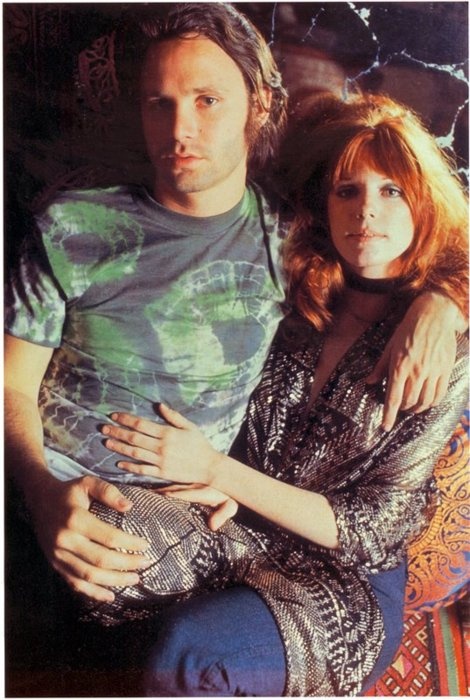











































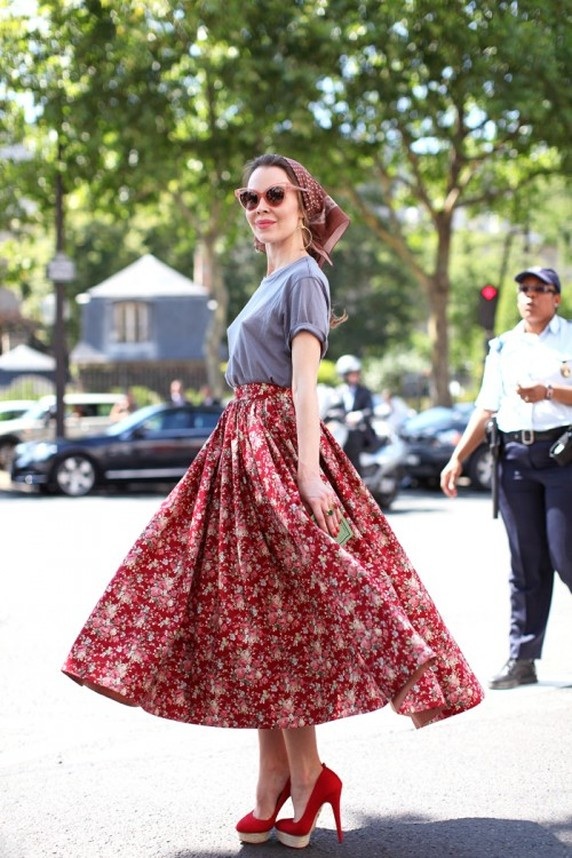

































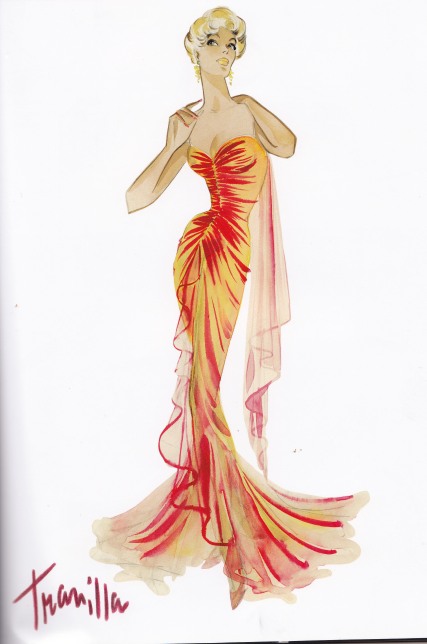
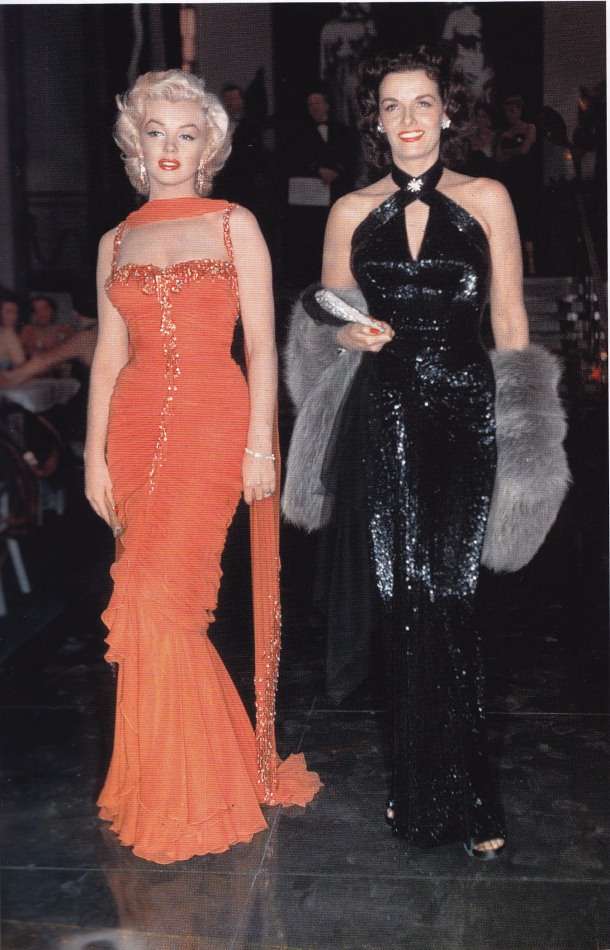


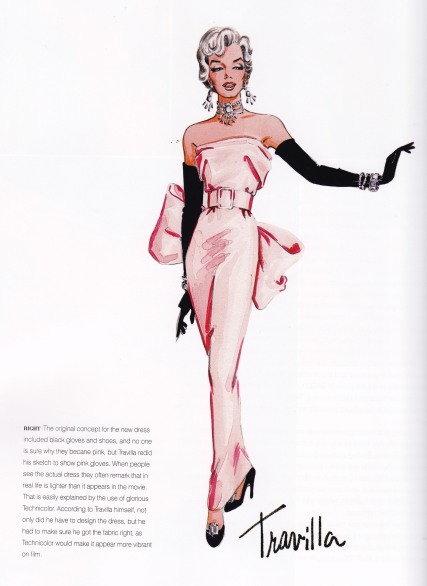


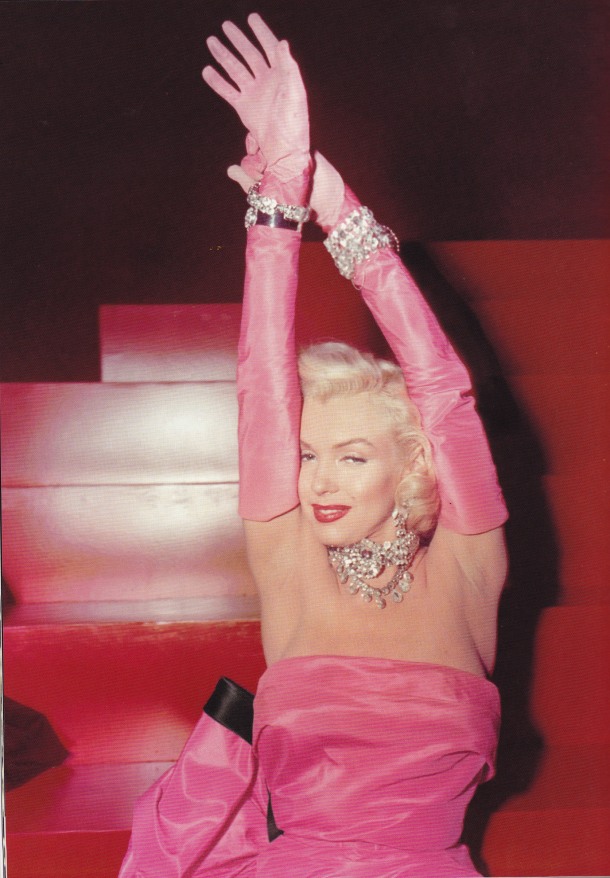
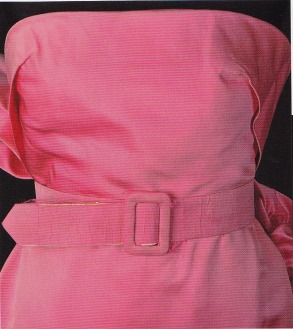
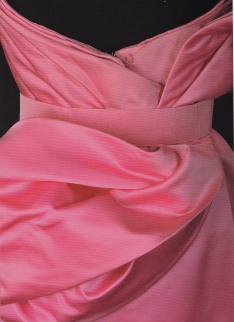





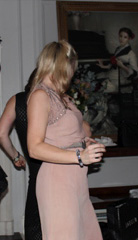


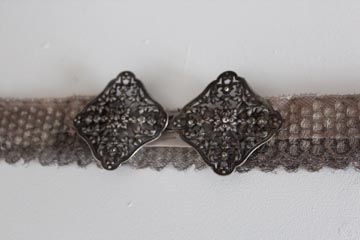

































Amazing blog, I can’t stop scroll down, keep finding inspiration after inspiration, everything at the same place. Very rich blog with visual content, nice! 🙂